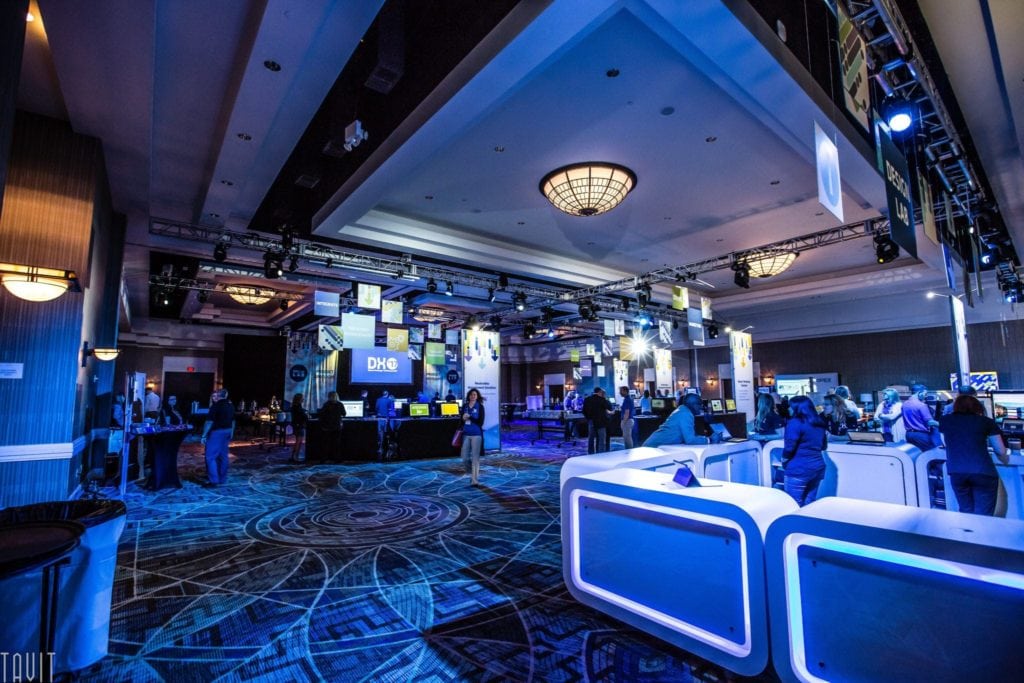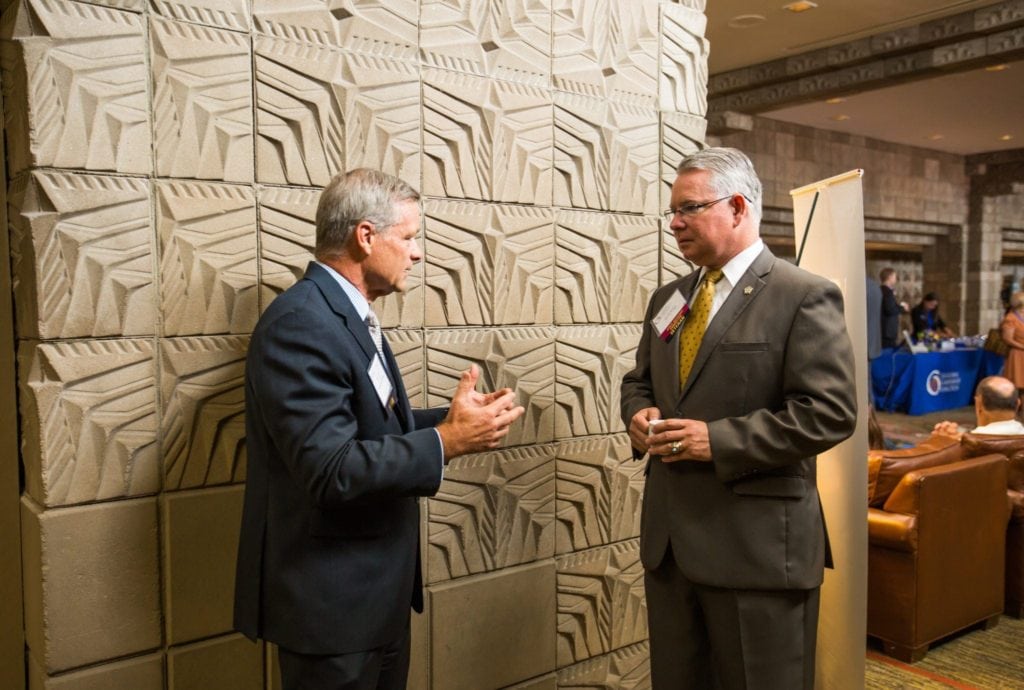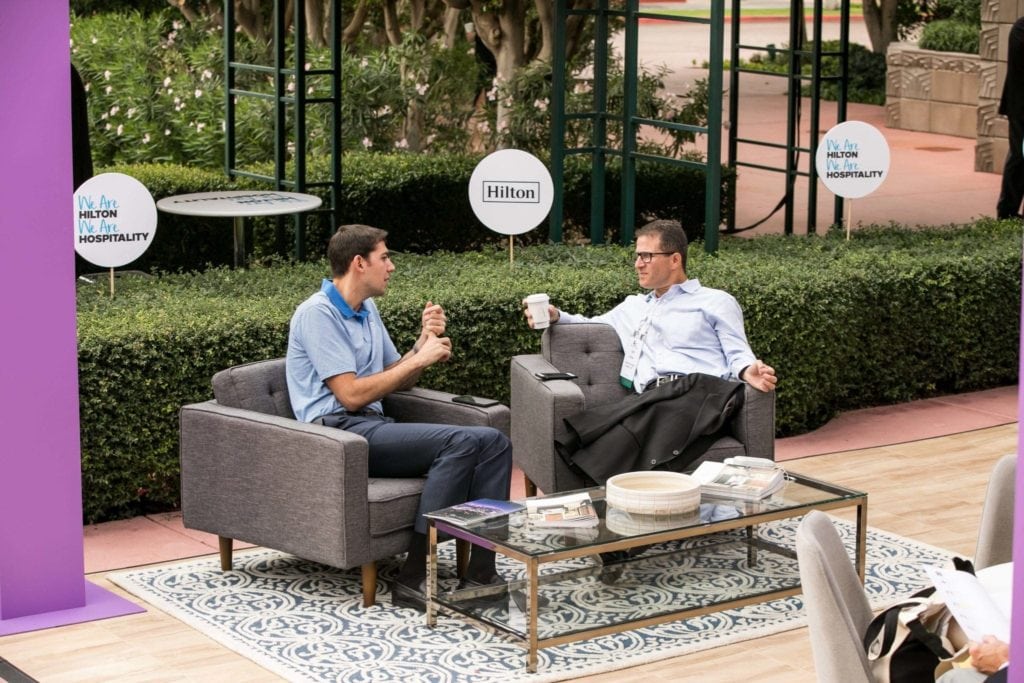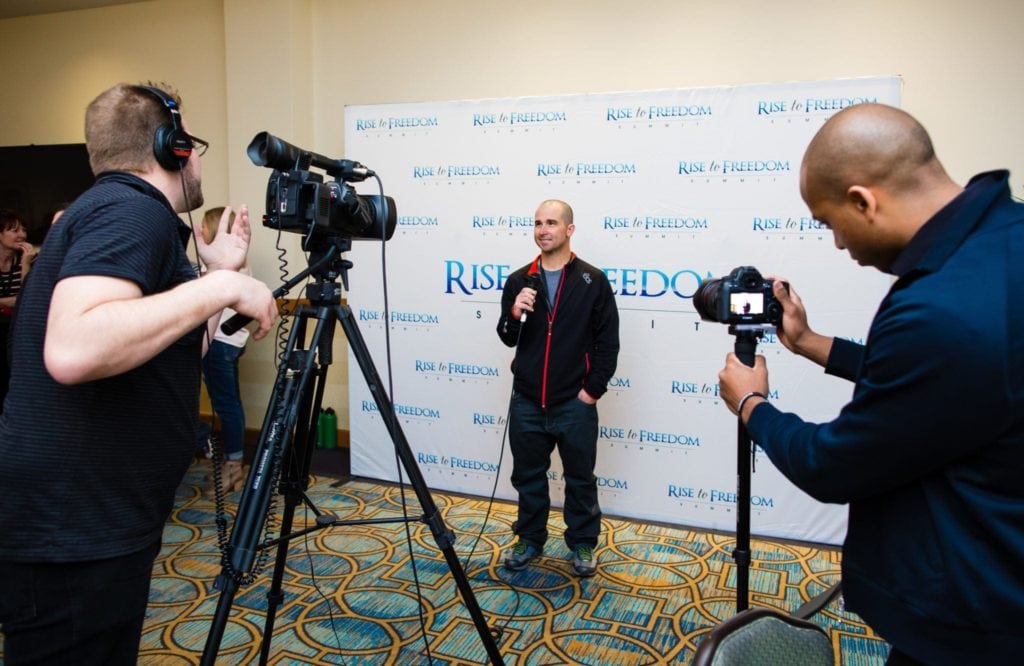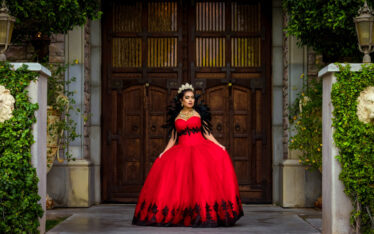One of the more popular specialties of photographers is corporate event photography. Corporate photography involves taking photos of important company events. It’s a major income source for many photographers as many companies hold regular events like dinners, trade shows, conferences, cocktail receptions, seminars, marketing events, and parties, among others. It is a lucrative market with a captive audience – the company’s officers and employees. Corporate event photography may not be like a fashion shoot or street photography, but the photos still tell a lot of stories. Most of the subjects are moving or on the move. It involves a more formal environment. A good photographer will be able to come up with creative shots even if corporate event photography does not really create a lot of opportunities for this. Yes, corporate event photography pays well, especially if you consider that the time is scheduled; that is, there is a particular time for the start and end of the event. A client who pays well will want good work from you, so it is important to know the basics of good corporate event photography. You can start by learning more about your client. The first thing you need to do is get to know your client. Read and research all that you can about the company. Talk to people and find out what makes the company unique, or get information about its success story. You can even set up an appointment for a representative who can help you get to know the company better. After getting to know the client, you now need to know and understand your assignment. It is not enough that you know you’re going to shoot an awards ceremony for the company’s employees. You need to have pertinent information about the event. For example, what awards will be given away? How were the awardees chosen? What’s the story behind the awards? The answers to these questions will help you get ideas about what your client wants from you. At the same time, you’ll also know what the client does not want to happen. Finally; do not forget to talk to your client about the event details. What time should you be there? Is there a required outfit? Will there be a pre-event shoot? Get all your task details days before the event so you can prepare ahead of time. Other vital questions to ask: Where can I set up my work area during the event? Is Wi-Fi available in the venue? Will there be another photographer covering the event? It is also important to clarify the terms of your contract. You’re dealing with a company, so a contract (written and printed) is important. Study the venue. If possible, get a layout from the client. This will allow you to plan your shots and study your angles ahead of time. You can choose the best angles, so when the event comes, you’ll have an idea of how to create the shots already. Get a copy of the complete event schedule (or program) from whoever is managing or organizing it. This will give you an idea of the flow of activities. Additionally, this will help you draw up your own schedule. Invest in a good outfit. Remember that you are joining a corporate event, not a fashion show or a night out with friends. You have to adhere to the theme or motif of the event. It is important for you to be able to blend in with the guests. Most of the time, guests wear formal or semi-formal attires at As previously mentioned, you should blend in with the guests, so you should look like a professional. In relation to this, you are also expected to act accordingly. It pays to be courteous, especially when you’re dealing with industry bigwigs. Move around the venue. Move slowly. This should be your way of finding good subjects. To make sure that you can take good photos even if you cannot be as close as you want to be to your subject, use zoom lens. Better yet, bring one long zoom and one short zoom lens. You can also bring one “all-in-one” lens. Usually, this lens has focal lengths that can cover anywhere from 28mm to 300mm. Before you take a photo of someone, or of a group, ask permission first. Let them know that you are the event’s official photographer – most of the time they’ll say “Yes”. As much as possible, try to get shots from different angles. This is the reason why you need to check out the venue first (pre-event). The more you vary your shots, the better the results will be. Varied shots or angles will also give you different perspectives. Experiment and have fun! Do not take photos of people eating. Especially when their mouths are open! Instead of taking photos, use dinnertime to rest and review your first shots. You need to eat, too. In addition to shots of people eating, you should also avoid taking photos of speakers with their mouths open. What you should do is take continuous shots of the speaker and then choose which ones are good (and does not show the speaker in a non-desirable pose or angle). Take candid shots of people. And, as much as possible, do not use your flash. If you need to, ask permission first. Sometimes, flashlights can be annoying and disturbing to guests. Work well and work fast. Corporate clients often ask for the photos at the end of the event or the day after the event. Aside from zoom lens, you also need to bring the following whenever you do corporate event photography: To make a good impression on your client, be at the event venue as early as you can. This will also give you ample time to set up. Corporate event photography may be a different specialty or genre for you, but if you love and enjoy what you’re doing; if photography is your passion, everything will be fun and easy! Michael Gabriel L. Sumastre is an experienced writer who loves to take pictures of the countryside as well as aerial photographs. He maintains his professional writing portfolio at TheFinestWriter, and you can visit his photography portfolio at Sumastre Photography.Photographing Corporate Events 101: What You Need to Know
Getting to Know Your Client
Pre-Event
Days before the event, you should start preparing yourself and your equipment:
corporate events.During the Event
Here are top tips you need to follow during the event:
Gear
About Guest Blogger: Michael Gabriel
01/23/18 | Blog
Contact
Event Photographer Reviews
Google Rating
Related Blogs
06/17/24
Once again, the Las Vegas Grand Prix will transform Sin City into a high-octane spectacle, as it did last year. This thrilling event attracts a...
06/14/24
Bar and Bat Mitzvahs are pivotal rites of passage within the Jewish community, celebrating a boy’s 13th birthday (Bar Mitzvah) and a girl’s 12th birthday...
06/14/24
Quinceañeras are a significant tradition in many Latin American cultures, marking a young girl's transition from childhood to womanhood on her 15th birthday. This rite...
